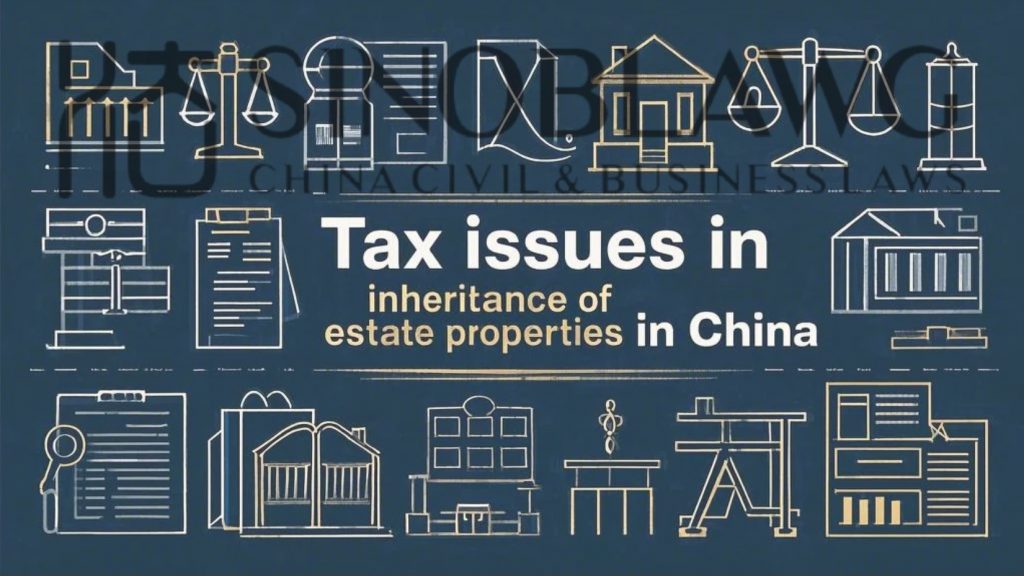When a foreigner is involved in an inheritance dispute situation in China where the equity interests in a China limited liability company (much the same as a private/closed company in other jurisdictions) is the estate to be inherited, a court action is necessary to solve the estate dispute. A mistake unexperienced lawyers may often make in judicial practice is the wrong choice of cause of action when framing the litigation.
I. What is an Cause of Action?
Strictly speaking, due to the fundamental differences in legal sytems and culture, there is no equivalent counterpart in Chinese legal terminology for the term “cause of action”. But functionally, it is pretty much close to the concept of “legal basis for claims” we Chinese lawyers use in civil litigation.
In Chinese civil litigation practice, when a plaintiff contemplates a lawsuit against someone, he shall define what claims he wishes to make from the defendant, then he needs to be clear about what kind of legal relationship underpins his claims, and further identify those provisions in legislation statutes that governs and regulates such a relationship.
For example, when there is a valid contract in place, and the defendant has failed to make payment, the plaintiff’s claim is to request the defendant to pay the money under the contractual legal relationship, and he needs to look up China Civil Code for those provisions relating to liabilities for breach of contract to see whether his claims are well grounded.
II. An Inheritance Dispute?
In the case of inheritance of equity interests in limited lialibity companies, the instinctive reaction is that this is of course an inheritance case, thus the plaintiff shall frame the litigation as an inheritance case whereby the plaintiff requests the court to affirm his or her right in the equity interests in the company to which the disputed shareholding is related.
In judicial practice in China in regard of such inheritance disputes, the general claim, in the case of intestate succession, is “to request the court to order the inheritance of the estates in accordance with relevant laws”, or in the case of testate succession, is to “request the court to order the inheritance of the estate in accordance with the will of the deceased”. Under China inheritance law, there could be other claims such as claiming for provisions to be made for persons dependent on the deceased in certain circumstances.
That sounds plausibly nothing wrong about it.
If the litigation runs its course like that, in the end, the plaintiff will only get a judgment in which the court affirms his or her right in the estates, and a specific percentage (in case of multiple heirs or beneficiaries) is ordered as a result of distribution by the court.
Is that the end of the inheritance efforts?
NO! The plaintiff and other heirs receiving a share in the estate equity interests in the company shall still need to register themselves as shareholders in that company. Otherwise, while they are the shareholders of the company as a result of court order, they have no right to hold themselves out to the publich as shareholders of that company.
In practice of corporate registration, we cannot rule out that some company registration autorities may agree to register the heirs as shareholders of the company in question, but it is very likely that most company registration authorities may refuse to do it.
III. Frame the Litigation as Shareholder Qualification Case
I remembered there was a high-profile case involving inheritance by multiple heirs from Hong Kong of equity interests in a China limited liability company in Guangdong province, which case attracted wide attention in judiciary arena in particular among family lawyers. In this case, the plaintiff initially filed an inheritance lawsuit which was withdrew half way and then refiled a case requesting the court to affirm the personal representatives of the deceased to be the shareholders of the LLC in China.
The big difference between the two types of lawsuits lies in who are the defendants therein. In the case of an inheritance case, the defendants must be other heirs of the deceased, while in the case of shareholder qualification case, the company in which the equity interests belong to is the defendant with other heirs joining the liltigation as independant third parties.
The rationale behind the change from an inheritance case to a shareholder qualification case, is that the latter strategy and legal basis will make it easier for the plaintiffs, those personal representatives, to register themselves as shareholders of that China company.
In adjudicating the shareholder qualification case, the court will have to look into the legal basis of the claimants to claim to be shareholders for the LLC company, which is the legal basis of inheritance as provided in Article 90 of New China Company Law amended in 2023.
It is worthy of a particular note that the new China Company Law has made it crystal clear that it is the duty of the company to update the shareholder registration of the company.
Such nuanced difference in practice is critical from the very beginning.
Time and again, we see clients choose their lawyers only because they may personally know that lawyer better, not because they are professional and specialized in that area of law practice, consequently these clients may have to replace their original legal counsels half way in their fighting journey in China.






Comments